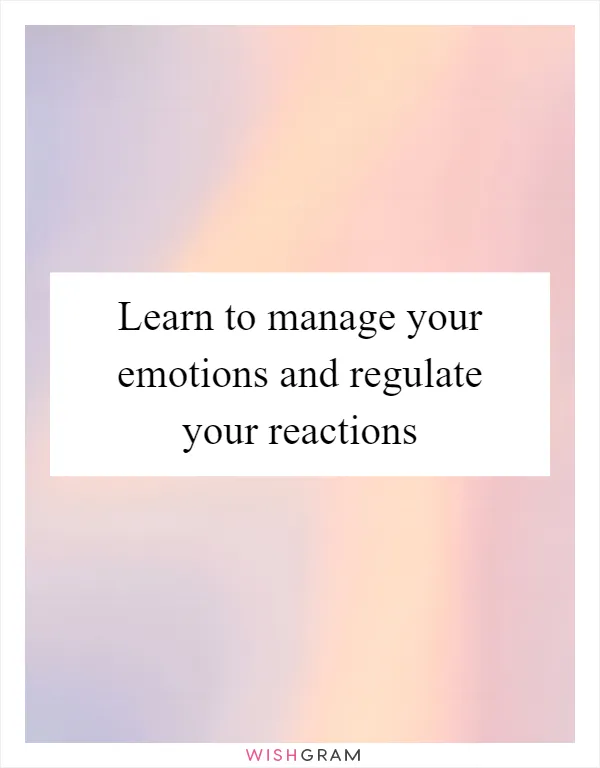Learn to manage your emotions and regulate your reactions
Learning to manage your emotions and regulate your reactions is an essential skill that can greatly improve your overall well-being and relationships with others. It allows you to navigate through life's ups and downs with greater ease and maintain a sense of control over your actions and responses. While it may not always be easy, with practice and patience, you can develop this important ability.
Emotions are a natural part of being human, and they can range from joy and excitement to anger and sadness. However, it's important to remember that emotions are not inherently good or bad; it's how we choose to express and handle them that matters. By learning to manage your emotions, you can avoid impulsive reactions that you may later regret.
One effective way to manage your emotions is by developing self-awareness. Take the time to understand and recognize your emotions as they arise. Pay attention to the physical sensations in your body, such as a racing heart or tense muscles, which can be indicators of your emotional state. By acknowledging and labeling your emotions, you can gain a better understanding of why you're feeling a certain way.
Once you have identified your emotions, it's important to regulate your reactions. This means taking a step back and considering the best course of action before responding. It's natural to feel an immediate urge to react, especially when emotions are running high, but pausing and taking a deep breath can help you regain control. Give yourself a moment to think about the potential consequences of your actions and choose a response that aligns with your values and goals.
Another helpful strategy is to practice empathy and perspective-taking. Try to put yourself in the shoes of others and consider their point of view. This can help you understand their emotions and motivations, which in turn can influence how you respond. By showing empathy, you can foster better communication and build stronger relationships.
Additionally, finding healthy outlets for your emotions can be beneficial. Engaging in activities such as exercise, journaling, or talking to a trusted friend or therapist can provide a safe space to express and process your emotions. These outlets can help prevent emotions from building up and overwhelming you, allowing for a more balanced and regulated response.
Remember, learning to manage your emotions and regulate your reactions is a lifelong journey. It takes time and practice to develop these skills, so be patient with yourself. Celebrate small victories along the way and don't be discouraged by setbacks. With dedication and perseverance, you can cultivate emotional intelligence and lead a more fulfilling and harmonious life
